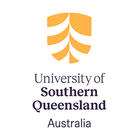Master of Science (Astrophysics)
Master of Science (Astrophysics)
Overview The Master of Science (Astrophysics) enables professional development in astrophysics and astronomical and space sciences through coursework and research. Gain discipline knowledge and research project experience and widely useful scientific, numerical and critical analysis skills. This degree combines coursework and research giving you the opportunity to further develop your…
Categories
COURSE DESCRIPTION
Overview
The Master of Science (Astrophysics) enables professional development in astrophysics and astronomical and space sciences through coursework and research.
Gain discipline knowledge and research project experience and widely useful scientific, numerical and critical analysis skills.
This degree combines coursework and research giving you the opportunity to further develop your skills with four units of research. Designed for those already in an educational or science communication career, you will undertake a professional development component in science, as well as gain a specialist foundation relevant for further research.
You will have the opportunity to decide between two different pathways of study in your masters degree:
- Research Project track — the Research Project track equips you with research skills and allows you to develop a research thesis through a project in your chosen disciplinary application area.
- Research Training track — the Research Training track allows you to develop your research capability and gain specialised cognitive and technical skills to prepare for a professional career in science.
You will have access to UniSQ’s remote-access facilities, including the Mt Kent Observatory, a facility for astronomical research and education operated by UniSQ, in partnership with the University of Louisville in Kentucky, USA, and Automated Patrol Telescopes Australia Pty Ltd, in addition to a High-Performance Computing cluster.
Astronomy at UniSQ is a significant part of a physical sciences research cluster that has consistently rated as world class in Excellence in Research in Australia (ERA) assessments.
Students enrolled in the Master of Science (Astrophysics) can apply to exit their studies early with a Graduate Certificate of Science after completion of four units of study.
Career outcomes
- As the global space industry supports a range of jobs beyond specialised space scientists and engineers, this degree accommodates those from a range of backgrounds seeking knowledge and skills relevant to international and emerging Australian space industry opportunities.
- This degree provides professional development for a scientist working for industry or government, technician working in a laboratory or in the field, practicing teacher or provider of scientific or technical services.
REQUIREMENTS
- 3-year Bachelor degree from an Australian university or equivalent. or
- equivalent professional work experience, as determined through the Credit and Exemption procedure.
IELTS (Academic only) – Overall minimum score of 6.5 and no individual band score of less than 6.0; TOEFL (internet based) – Overall minimum score of 90 and no individual skills score of less than 20; Pearson (PTE Academic) – Overall score of 58 and no individual Communicative Skills score of less than 58; Cambridge C1 Advanced C2 Proficiency – Overall minimum score of 185 with no less than 185 in each skill.
EDUCATIONAL INSTITUTION
The University of Southern Queensland (UniSQ) is Australia’s leading regional university. With a strong focus on research, teaching and positive student experience, we provide high-quality flexible programs producing some of Australia’s highest-paid graduates4. Our students benefit from flexible options of on-campus studies, delivered across three campuses in Queensland, Australia, online and multimodal study options and through trusted national and international education partners. UniSQ is ranked in the top 400 universities2 and 58 young universities worldwide3. UniSQ is also rated as a QS 5 Star university and ranked 5/5 stars in Australia for graduate employment and graduate starting salaries1.1 QS Stars World University Rankings, 20242 Times Higher Education World Universities Rankings, 20243 Times Higher Education Young Universities Rankings, 20244 QILT Graduate Outcomes Survey, Postgraduate Results, 2021-2022




